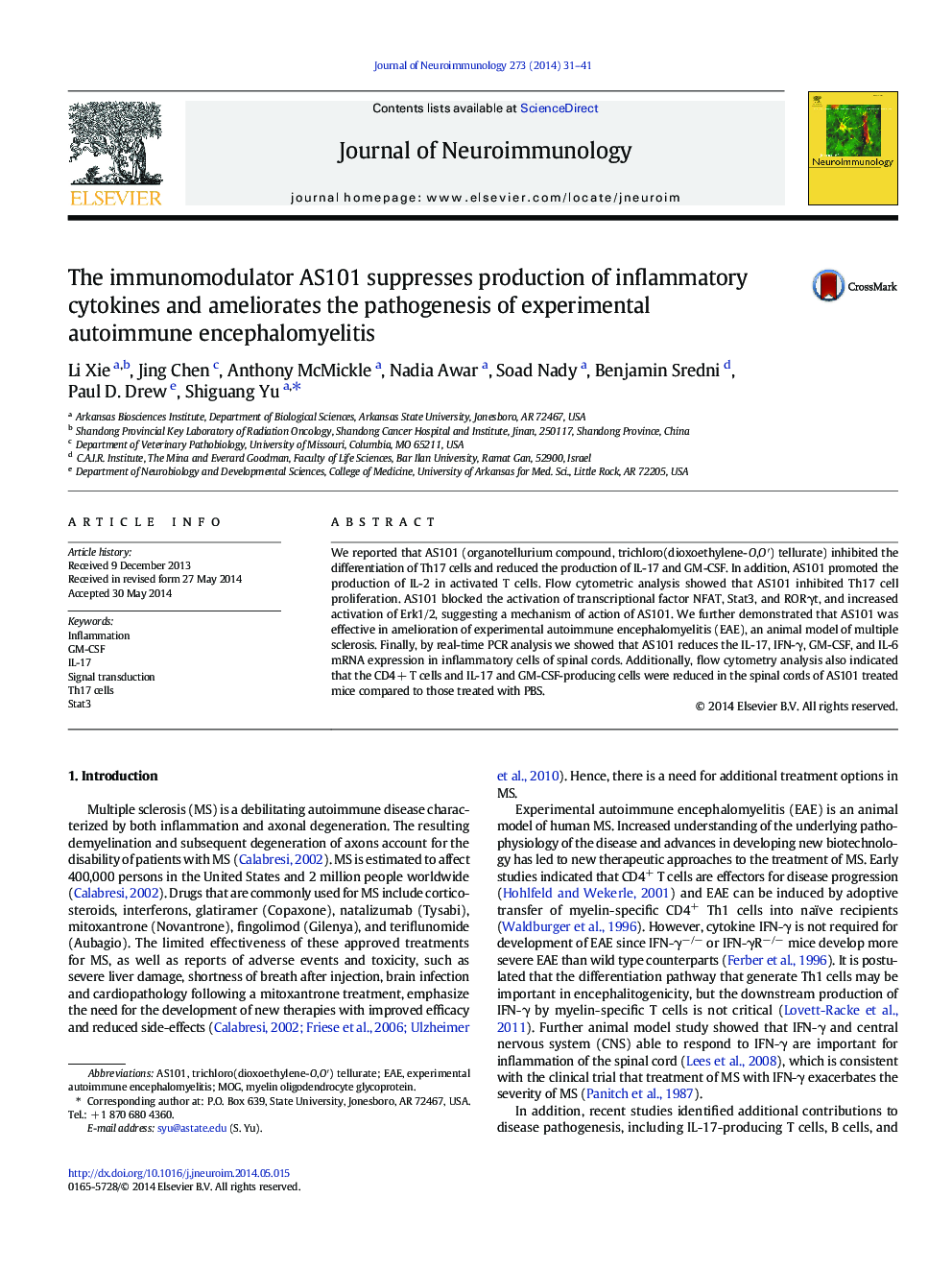| Article ID | Journal | Published Year | Pages | File Type |
|---|---|---|---|---|
| 6020284 | Journal of Neuroimmunology | 2014 | 11 Pages |
â¢Immunomodulator AS101 inhibited the differentiation of Th17 and Th1 cells.â¢AS101 reduced the production of IL-17, GM-CSF, and IFN-γ in activated T cells.â¢But AS101 promoted the production of IL-2 in activated T cells.â¢AS101 blocked the activation of NFAT, Stat3, and RORγt, and increased activation of Erk1/2.
We reported that AS101 (organotellurium compound, trichloro(dioxoethylene-O,Oâ²) tellurate) inhibited the differentiation of Th17 cells and reduced the production of IL-17 and GM-CSF. In addition, AS101 promoted the production of IL-2 in activated T cells. Flow cytometric analysis showed that AS101 inhibited Th17 cell proliferation. AS101 blocked the activation of transcriptional factor NFAT, Stat3, and RORγt, and increased activation of Erk1/2, suggesting a mechanism of action of AS101. We further demonstrated that AS101 was effective in amelioration of experimental autoimmune encephalomyelitis (EAE), an animal model of multiple sclerosis. Finally, by real-time PCR analysis we showed that AS101 reduces the IL-17, IFN-γ, GM-CSF, and IL-6 mRNA expression in inflammatory cells of spinal cords. Additionally, flow cytometry analysis also indicated that the CD4 + T cells and IL-17 and GM-CSF-producing cells were reduced in the spinal cords of AS101 treated mice compared to those treated with PBS.
